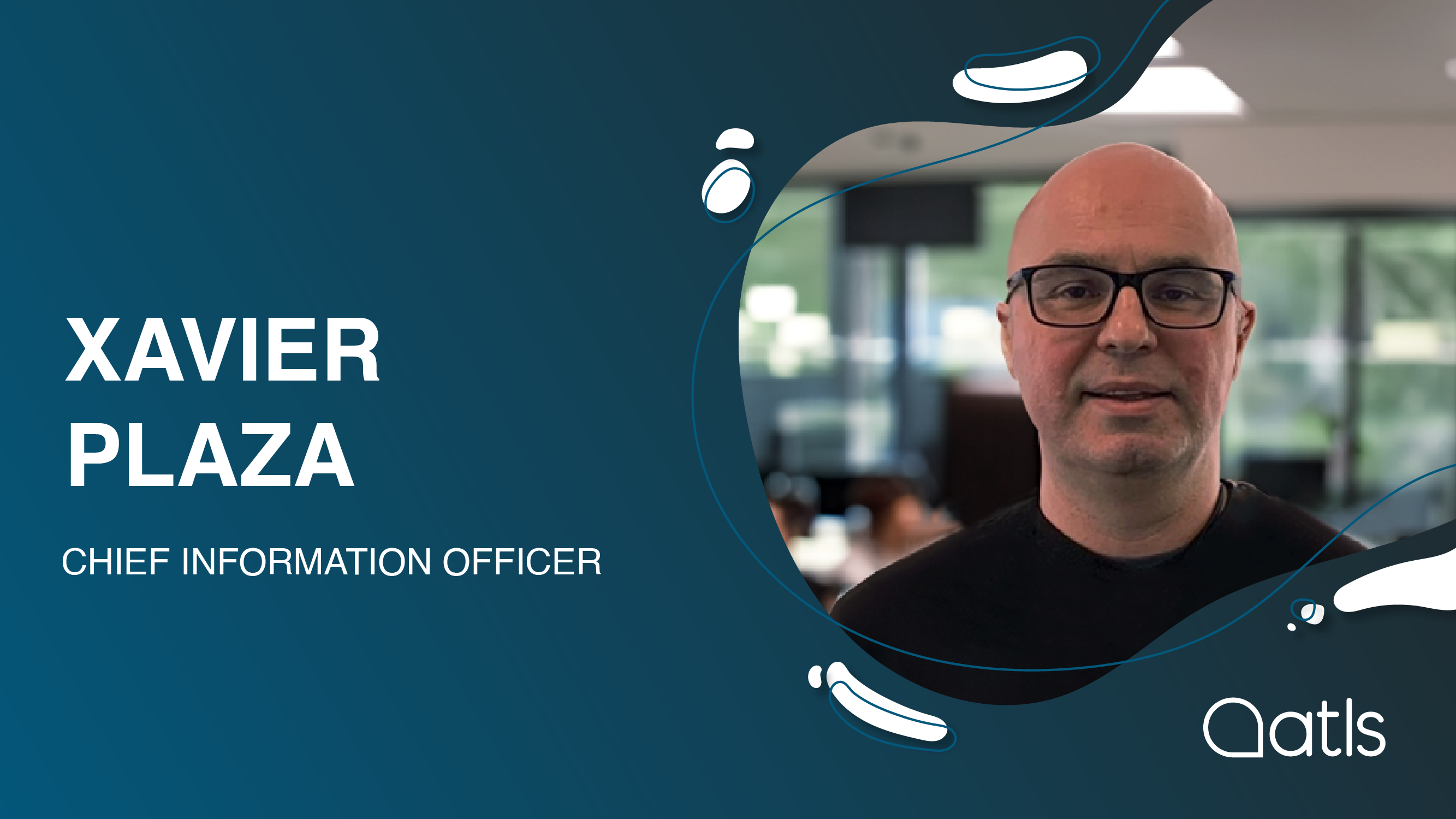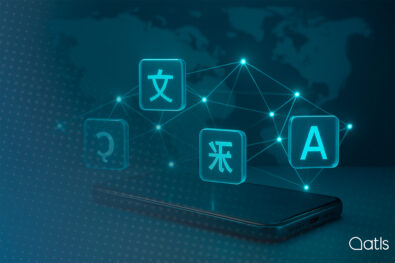Give us a brief rundown of your professional career. How did you come to be the CIO of ATLS?
Over my 35 year-plus career, I've had the opportunity to work in a wide range of industries in the private and public sector, giving me the ability to develop a multidisciplinary vision. My career started out in the technical field; I worked in ICT consultancy and software development, and gradually evolved into roles with greater responsibility in team management and managing complex projects.
I led the company Proyectos en Gestión del Conocimiento, S.L. for more than 15 years. In that role, I defined strategies and developed innovative products including business intelligence platforms and AI systems. In addition, I created and led an Artificial Intelligence and Data Science team, taking part in pioneering projects such as service demand forecasting and sentiment analysis. This enabled me to build a solid background in key areas such as business intelligence, artificial intelligence and process automation.
In 2024, I decided to take on the challenge of being the CIO of ATLS, applying my own knowledge to promote technological innovation projects at the company.
In your role as CIO, how would you define technological innovation in a company like ATLS combining translation, digital marketing and artificial intelligence?
The aim of technological innovation at ATLS is to optimise internal processes, improve the quality of our work and expand our capacity to offer customised services tailored to the needs of the market.
With more than 25 years' experience in the field, ATLS has always stood out for developing rule-based translation engines, and since 2018 we have made significant progress on training our own neural engines, consolidating our position as pioneers in the machine translation field.
Our innovation efforts are currently focused on improving the efficiency, quality and scope of our translation services. We're also integrating technological solutions deeper into our customers' business processes, developing AI-based plugins, APIs and AI-based automatic translation review systems.
Artificial intelligence is revolutionising the translation industry. What impact do you think it currently has on our translation processes, and in which areas you see the greatest growth potential?
Ultimately, artificial intelligence is significantly transforming our translation processes at ATLS, but with important nuances depending on the type of technology and language combinations. In languages such as Catalan, Galician and Portuguese, our rule-based translation engines still outperform neural engines in terms of accuracy and consistency. This is because specific language rules in these languages don't benefit as much from the large corpus that neural engines need for effective training.
However, in languages such as English, French and German, neural engines offer a clear advantage. In these cases, AI can generate more fluid and accurate translations.
As for the potential for growth, I see three key areas to which AI could continue to contribute: improvement of AI-assisted post-editing, customised translation and integration with customers' systems.
Do you think machines will replace humans altogether in the field of translation?
At ATLS, striking the right balance between AI automation and human intervention is an essential element of guaranteeing efficiency and quality in our translation services.
Even though neural engines have improved significantly, including language combinations such as English, French or German, they still can't attain the level of precision and nuance offered by professional translators. Machines still can't fully capture the tone or cultural and contextual subtleties that important documents call for.
This is why, in certain cases, such as shareholder reports or communications with stakeholders, or any document requiring strategic positioning, it's essential for translations to be done by humans. Plus, in some services like sworn translation, human intervention isn't just necessary, it's obligatory for legal and liability matters.
As for the future, although technology is still advancing rapidly, there's no crystal ball we can look into to find out if machines will replace human translators completely. One thing we can be sure of is that – for now – the role of professional translators remains indispensable in many contexts where precision and sensitivity are crucial.
As new technologies like natural language processing (NLP) and machine learning progress, which innovations will define the future of the translation industry?
Good question! Thanks to advances in technologies such as natural language processing (NLP) and AI, the translation industry is continuing to evolve rapidly. As these technologies advance, I can imagine several innovations having a significant impact on the future of the industry.
One of them is the potential to offer customised translations, where algorithms predict a customer's preferred style and tone, automatically adapting to their profile and language preferences.
Another major innovation will be real-time translation, enabling us to process and translate text almost instantly. This could transform sectors such as tourism, international business and global communication. In addition, automated grammar and spelling correction will become increasingly accurate, reducing human intervention in the review stage and increasing translation quality.
Finally, we mustn't forget the potential to create accessible translations for people with disabilities using NLP technologies to develop translation tools for people with visual or auditory impairments, making tools more inclusive and accessible.
Could you tell us a recent example of ATLS implementing artificial intelligence to improve the customer's experience or streamline internal processes?
ATLS has been working with artificial intelligence engines to improve our translation services for some time, and we've recently expanded AI to other key areas, continuing to optimise both the customer experience and internal processes.
On the one hand, we're implementing a system to categorise and extract data from customers' emails. This solution aims to automate a large part of our operational processes, streamlining the management of requests and improving response times. We expect this initiative to considerably reduce our team's manual load, increasing our overall efficiency.
We've also launched a private ChatGPT solution to assist our development team. This tool enables us to harness artificial intelligence without compromising the security of our code, given that we never use external services such as Copilot. Although we're still in the early stages of implementation, we believe that this innovation will accelerate development and technical support processes.
What advice would you give to companies that are starting to explore the integration of AI and advanced technologies into their internal processes?
I don't think I have enough authority to advise other companies. But based on my experience, I would say you need to focus on areas where AI integration can have a direct and tangible impact on internal productivity, rather than trying to compete on large-scale projects that are already being tackled by large players such as Google, Microsoft and DeepL.
My advice would be to focus on smaller, more manageable projects that can be implemented quickly and nimbly, providing immediate improvements to internal processes. Plus, it's important not to try to find the perfect solution, given that new technologies may emerge in the time you spend trying to develop 'the ideal', making your project obsolete before it's completed. In short, I would prioritise simple solutions that can be implemented effectively within reasonable time frames and provide real value from the outset.
What is your long-term vision for ATLS in the area of technological innovation? How do you plan to continue promoting the company to retain its leading position in the translation and language technology sector in years to come?
Nowadays, given the accelerated pace of new technologies, making long-term forecasts on technological innovation is a risky business. However, at ATLS we keep our approach flexible and adaptable, so we can continue being a benchmark in the translation and language technology sector.
One of the innovation projects we're working on is training customer-specific engines based on artificial intelligence that will allow us to offer highly customised solutions.
We've also started work on a content transcreation project aimed at SEO ranking; a key area where we can help our customers improve their digital presence in global markets.
We also plan to continue developing our own proprietary tools that give us the power to integrate our translation services with our customers’ content management systems. These solutions will enable us to optimise translation processes ever further, making operations more agile and efficient.
Without meaning to be too nosey, can you tell us something interesting about yourself? Give us some insight into your personal life. What is your favourite thing to do in your free time? 😊
I like doing things in my spare time that allow me to relax and disconnect. I like playing the guitar, walking and cooking.
RAPID FIRE QUESTIONS
- Can you remember what you wanted to be when you grew up? Yes, a musician.
- You are granted one wish to travel anywhere you want. Where would you go? I would travel around the world on a cruise ship.
- A book you could not do without. I don't tend to read novels, so it would be something related to a subject I'm learning at the time; an essay or maybe a travel guide.
- A dish you never get tired of. There aren't many dishes I would get tired of.
- Your favourite television series. Blood brothers.
- A film that left its mark on you. At the moment, Star Wars. More recently, Matrix, the dilemma of the red and blue pill seemed to me the perfect metaphor for whether or not we want to take responsibility for our lives.
- You love... being with family.
- You can't stand... I highly value planning and well-organised work, so I appreciate it when requests are managed in good time and with foresight.






